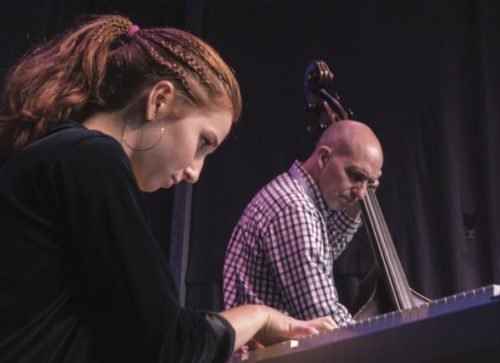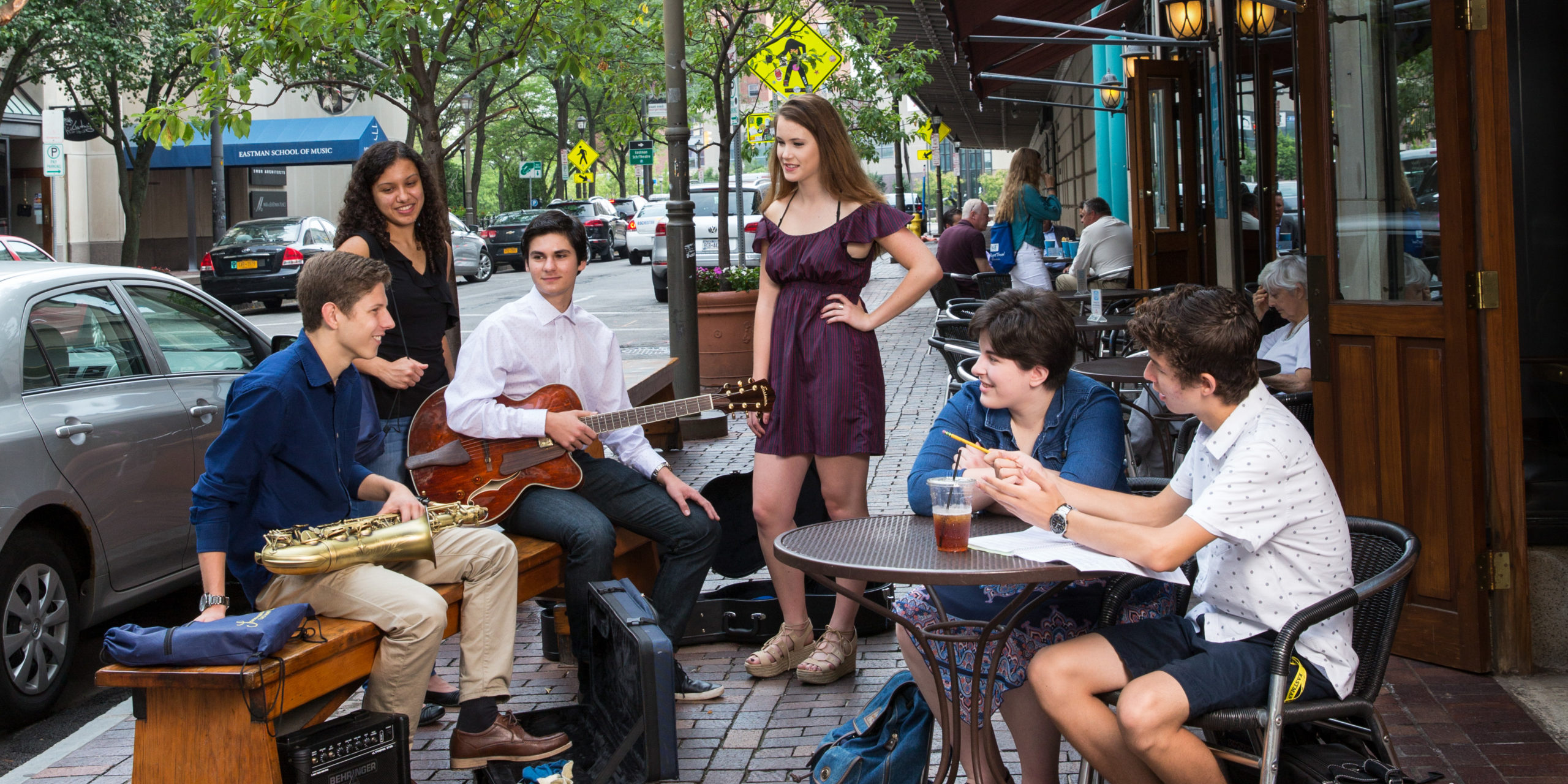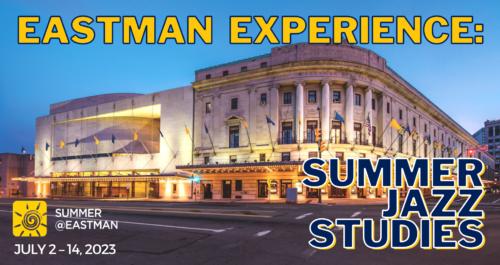Nearly half a century ago, Eastman pioneered a summer program for jazz musicians. Generations of students from around the nation spent their summers on Gibbs Street making music, making friends, and learning from each other and from Eastman’s faculty. In this blog, we hear from three leaders who significantly contributed to this thriving program and provided pedagogical continuum over decades. We hope their words inspire you to join us this Summer@Eastman!
Vincent Lenti (Professor Emeritus of Piano, Eastman School Historian)
Resident summer programs for high school students at the Eastman School began in 1973 when the school offered a six-week program for classical pianists that was expanded the following year to include all instruments. In 1976 the school began to offer a parallel six-week resident program for jazz students. Both programs have continued, with obvious modifications and changes over the years, since their inception in the 1970s. They are a strong presence at Eastman during the summer months.
Jazz entered the Eastman collegiate program during the Summer Session of 1959, and remained a summer-only activity until the Jazz Laboratory was established in the spring of 1967. Then in 1970, Ray Wright joined the full-time faculty at Eastman and became chair of a newly formed department of Jazz Studies and Contemporary Media. Finally, in the spring of 1974, the faculty approved the first jazz degrees to be offered by Eastman. Both were master’s degrees, one with emphasis on writing and the other on performance. The Summer Jazz Studies program for high school students arose amid all these developments and was created through the initiative of Ramon Ricker.
Ramon Ricker (Professor Emeritus of Saxophone)
Based on the popularity and success of the Classical Studies program for high school students, and the faculty approval of a master’s degree in Jazz Studies, the stage was set to offer a summer jazz program for high school students.

Jeff Campbell performing with a student
In the 1970s, jazz courses and degrees were in their infancy in higher education, but Eastman was on the leading edge. The new jazz studies program for high school students offered participation in large ensembles, small ensembles, jazz history/theory, faculty concerts and one-on-one jazz lessons. The six-weeks culminated with student concerts which sometimes took place at nearby city parks.
Jeff Campbell (Professor and Department Chair of Jazz Studies and Contemporary Media, Director of Summer Jazz Studies)
The Eastman Summer Jazz Studies program, in its current state, is a miniature version of the Eastman collegiate curriculum — the only difference is that the college semester lasts for fourteen weeks but the summer camp is compacted into a two-week intensive time frame. Just as we do in the full-time college curriculum, we offer the same courses in the Summer studies: instrumental classes, Jazz Performance Workshops, theory classes, Large Ensembles, jazz forum, and live concerts. And these are all taught by our full-time collegiate faculty. If a student wants to see what it’s like to attend Eastman as a jazz major, they can get a real-life sample by attending the Summer program.
And we are very proud that there are a number of musicians who are current students or graduates of the Eastman Jazz Department who are alumnus of Eastman Summer Jazz Studies. They come in the summer to get a glimpse of what it’s like to work with our faculty and then they apply for full-time admission when they’re ready to attend college.
As a faculty member, it’s very rewarding to see the musical growth that the students experience in just two short weeks. It’s also very satisfying to see the camaraderie and friendships that develop amongst the students.
***
Eastman Experience: Summer Jazz Studies runs July 2-14, 2023. Applications must be received by April 30, 2023. Visit our website for more information.
About Eastman Experience: Summer Jazz Studies:
This rigorous two-week program provides an intensive, performance-based experience for highly motivated students currently in grades 9–12 (ages 14-18 only–student must turn 14 and not be beyond 18 years of age before the first day of the program) and is ideally suited for those considering jazz studies at the collegiate level. A 2022 participant said about their experience, “This is a truly top-tier program for any student passionate about jazz and/or considering pursuing music at the collegiate level.” Students work directly with the renowned Eastman School of Music jazz faculty in a program that is designed to enhance improvisational and ensemble skills.

